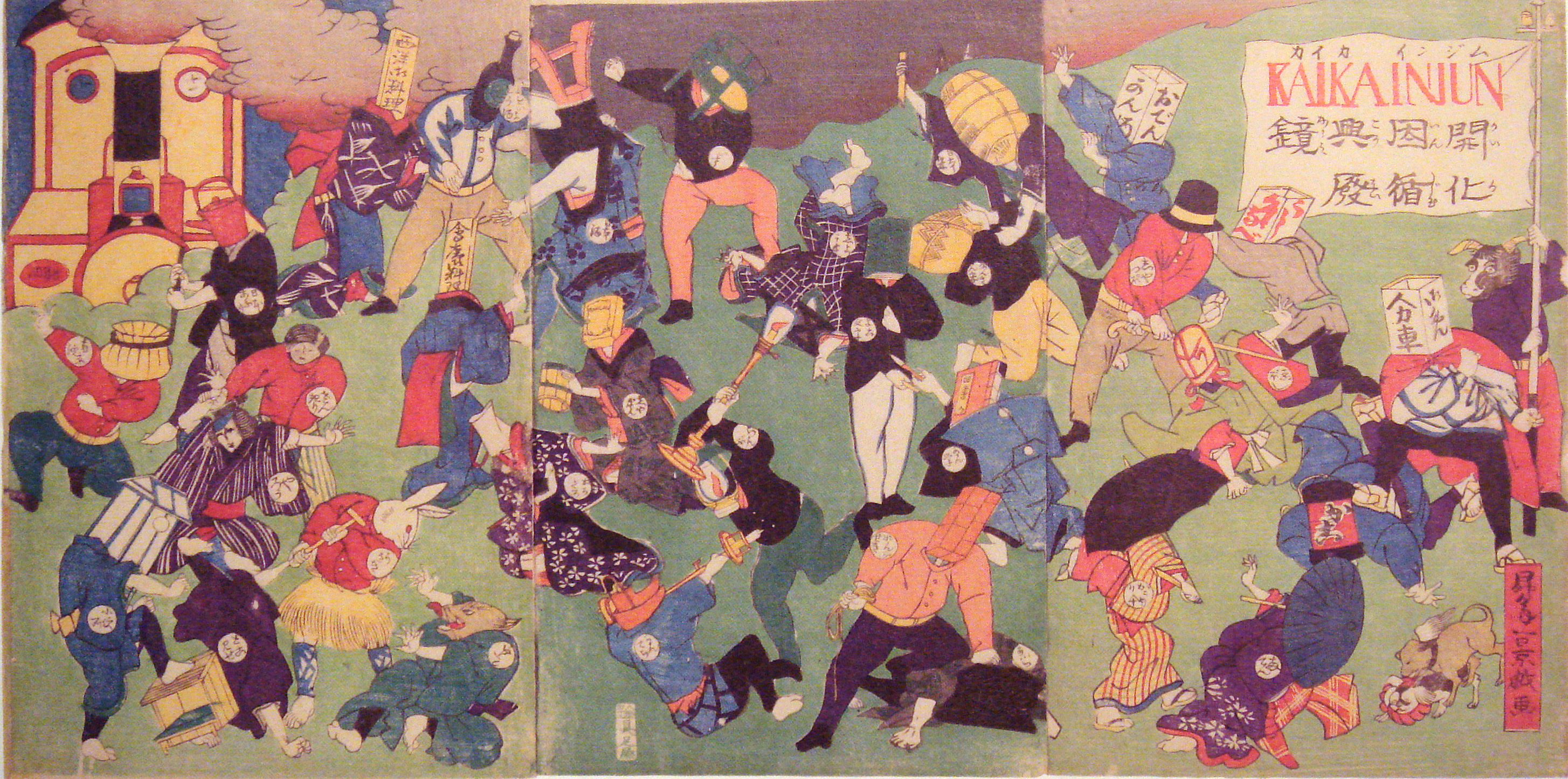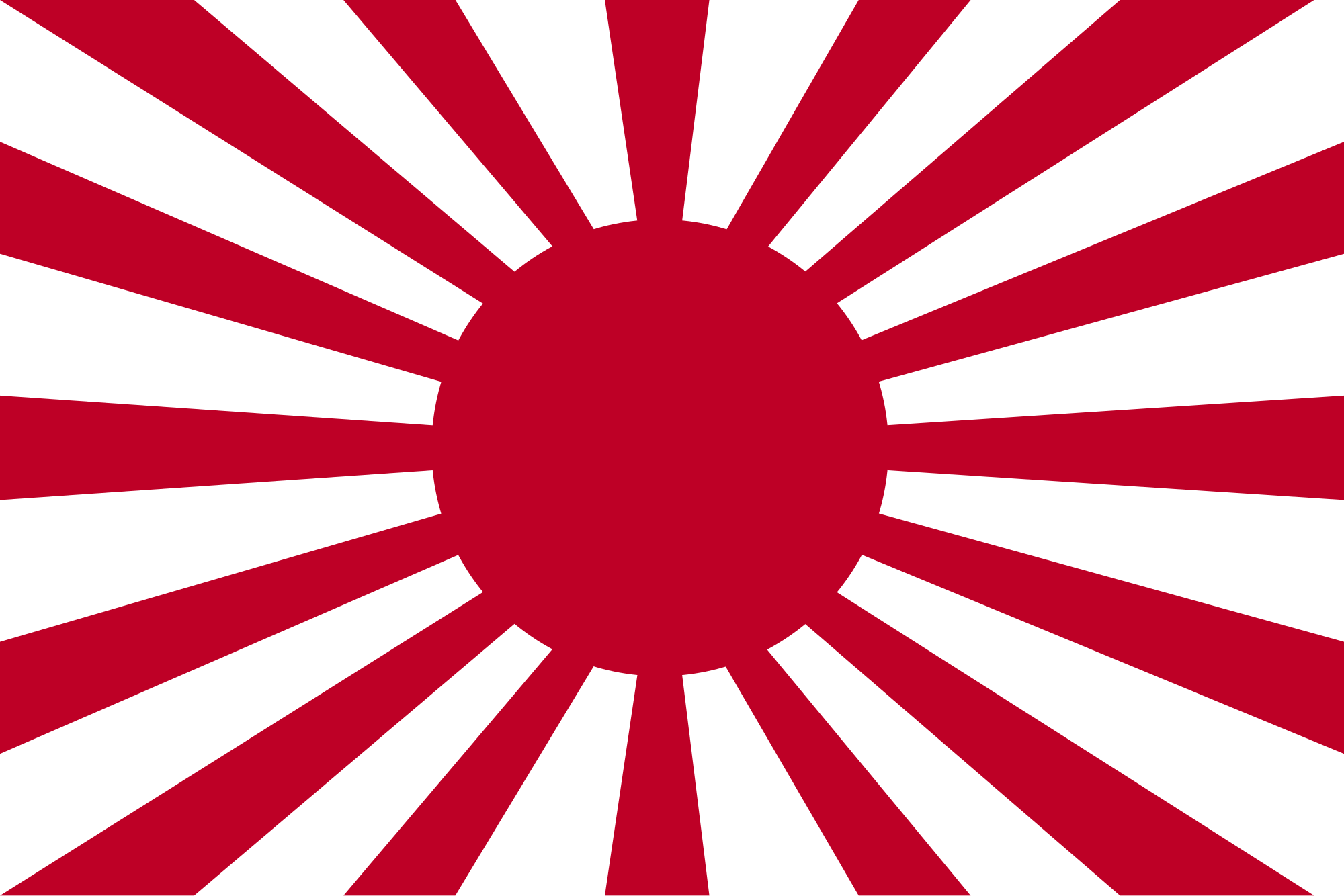JAPANESE IMPERIALISM
Japan's imperialism was riddled with social Darwinism, they stroved for respect in every country that they imperialize, forcing the people to do so. Japan believed that they were the chosen people of Asia, deserving of all power. It was social Darwinism at its finest - a group of people placing themselves as the ultimate power of all. For the people of Japan that justified their imperialistic acts, believing that they were doing all of Asia a favor by taking control of their country. However for the people living in those imperialist countries it made Japanese ruthless, superiority beating out any sympathy for the natives.
If the Japanese had anything they sure had nationalism. The belief that they were the best, or at least striving to be the best was what they were striving to be, kept the Japanese motivated. With the formation of the Mojo in Japan, there was a goal set for Japan to be the better of all nations, better technology, richest economy, more power. It was a goal to promote their nation setting them all up for the way that they imperialized, with pride for their country.
Korea was one of the places most affected by the Japanese imperialist movement, they were one of the areas that Japan hit hard. On the one hand, Japanese colonialism was often quite harsh. For the first ten years Japan ruled directly through the military, and any Korean dissent was ruthlessly crushed. Their rule lost a lot after a nationwide protest \, but there imperialist ruling was still brutal. Many Korean women were used as sex slaves for Japanese soldiers, Korean citizens were abused, rights were denied, in 1939 there was even a law passed demanding that all names be turned into Japanese one.
 Japan was full of raw material, the of export of which became huge after Japan ended there spurt of isolation. Hopping onto the industrialization band wagon ,Japan found itself easily able to produce goods and export them, quickly allowing them to rise to the top of the manufactured goods trade and became determined to assert itself as a great nation and not to suffer domination by the West as was China.
Japan was full of raw material, the of export of which became huge after Japan ended there spurt of isolation. Hopping onto the industrialization band wagon ,Japan found itself easily able to produce goods and export them, quickly allowing them to rise to the top of the manufactured goods trade and became determined to assert itself as a great nation and not to suffer domination by the West as was China.
In 1868 the Tokugawa shôgun ("great general"), who ruled Japan in the feudal period, lost his power and the emperor was restored to the supreme position. The emperor took the name Meiji doubling Japan's empirical come back as the Meiji Restoration. During the time before the restoration there had been a shut down of exports from the area due to the lack of a proper leader and the fact that here was not enough goods for there to be given as an export. That stunt ended when the new empire was formed, coxed by the Americas to end their period of isolationism Japan found themselves with a reformed empire and a open trade route.
 Military was a big contribute to the imperialistic ways of Japan. The Meiji empire was all about building up militaristic power, using that to impress other nations. To the Meiji rulers having a strengthen military was the number one, to command respect and become Asia’s super nation - it was why so much of then Mejie government way was aimed towards constructing the perfect army.
Military was a big contribute to the imperialistic ways of Japan. The Meiji empire was all about building up militaristic power, using that to impress other nations. To the Meiji rulers having a strengthen military was the number one, to command respect and become Asia’s super nation - it was why so much of then Mejie government way was aimed towards constructing the perfect army.Japan's relations with its neighbors also changed after the Meiji Restoration. Reform-minded Samurai soldiers reflect the outcome of the shift back into the empire, like leading that came during Japan's reform. The reform itsellf involved a lot of borrowing, using western traditions as there own, reforming military structures, economic structures, and of course immperialism. This new ruling of Japan lead to the reformation of japanese natonalism and that only fueled them to join the great race of imperlization.

When Russia began to become a threat in the late 1800’s, Japan took that as a threat to their growing empire. Using the looming Russian empire as an opportunity for there nation, Japan began to strengthen military, looking at Korea as their front line of defence. War was on the verge between China and JApan and Korea found itself in an imperialized predicament with no option really open.
Power had brought Japan respect from fellow imperial powers, Britain found itself leaning towards Japan more. With Russian imperialism on the cusp of conquering english territory, Britain found itself against Japan, the U.S. doing so in their own respects. The U.S. made an order for there to be no talk of disrespect towards Japan. The Western --- started to move to the Japanese’s side.

The Anglo-Japanese Treaty of Commerce and Navigation, signed by Britain and Japan, on July 16, 1894, was a breakthrough agreement. The treaty deemed the end of the unequal treaties and the system of extraterritoriality in Japan. The treaty came into force on July 17, 1899.
From that date British subjects in Japan were subject to Japanese laws instead of British laws. This was the treaty that helped the Japanese gain the support of Britain, directing itself against Russian expansionism in the Far East. The treaty remained intact up until after World War One when Russia lost its political stamina and England nor Japan feared their imperialistic take over.





No comments:
Post a Comment